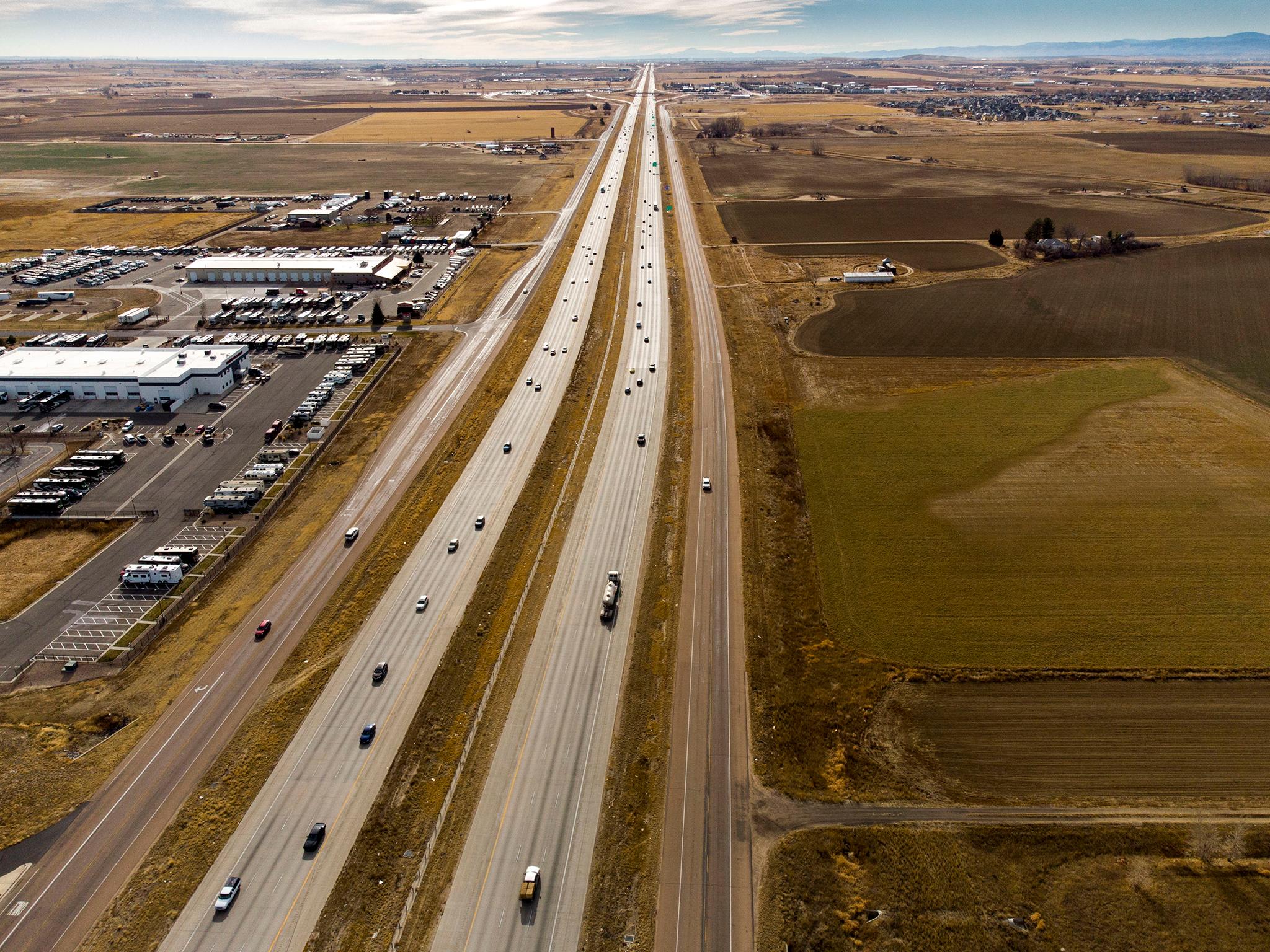
The state of Colorado has rejected a bid from a private international firm to build and operate toll lanes on Interstate 25 between Denver and Fort Collins.
The state has been slowly adding toll lanes to I-25 between the two cities for years, citing their ability to ease congestion, help fund construction and speed up public transit buses. Toll lanes exist or are under construction between downtown Denver and the northern suburbs, and from State Highway 56 near Loveland to Fort Collins.
That leaves a toll lane-less gap of about 21 miles between State Highway 7 in Thornton and State Highway 56 south of Loveland. Roadis USA, a subsidiary of a multinational Spain-based company owned by a Canadian pension fund, made an unsolicited “I-25 Now” proposal to build toll lanes in that gap, operate and maintain the toll lanes through the entire I-25 north corridor, and make safety improvements on I-25 in the north metro.
Roadis USA’s plan was a "public-private partnership," or P3. Under that funding structure, private firms typically provide upfront money — up to $500 million in this case — to get construction moving quickly in exchange for ongoing payments from government or, in this case, from toll revenue.
Part of the 2010s rebuild of U.S. 36 between Denver and Boulder used that model. The Regional Transportation District used a similar structure to build the A Line to Denver International Airport and other commuter rail lines, and is currently embroiled in a lawsuit with its private contractor.
But the state ultimately rejected Roadis USA’s proposal.
“It’s very disappointing,” Michael Cheroutes, president of Roadis USA, said in an interview Wednesday.
The state made its decision after “careful consideration” of the proposal, Karen Stuart, the board co-chair of the Colorado Transportation Investment Office, said after a closed-to-the-public executive session Wednesday.
“We will not be moving forward with the I-25 Now unsolicited proposal,” she said.
CDOT is already planning to make many of the improvements Roadis USA had proposed on I-25 North using federal and state funding and toll revenue, Stuart said. That includes new toll lanes between Berthoud and Longmont that will widen the road from two lanes to three, and the north metro safety improvements.
But that leaves out a roughly 14-mile stretch between Longmont and E-470 that has three lanes in each direction but no toll lanes. CDOT has no immediate plans to add them, much to the chagrin of some northern Colorado business leaders and local lawmakers.
“I’m not here to advocate for one way or the other, for a P3 or anything else,” state Rep. and Sen.-elect. Kyle Mullica, D-Thornton, told the CTIO board Wednesday. “I’m advocating for the damn project to get done for my community … They’re missing soccer practices. They’re spending more time idling on the highway when they should be spending time with their families.”
While recent federal and state laws have generated more new transportation dollars for Colorado than any other time in recent memory, Cheroutes said the state’s rejection of private investment is a missed opportunity.
“Whether it's us or another developer, the money is there,” he said. “And to not take advantage of that doesn't make a lot of sense to me.”
Cheroutes was also the first director of the state-owned investment company now known as CTIO after the legislature created it in the late 2000s and gave it authority to finance transportation projects through public-private partnerships and other means. As a user-fee funded “enterprise,” the office also sidesteps fiscal limitations the Taxpayer’s Bill of Rights places on taxpayer-funded agencies like CDOT.
Without naming her explicitly, Cheroutes pinned the state’s rejection of his company’s proposal on CDOT Executive Director Shoshana Lew.
“We have a different director at this point who has different ideas about what should come out of this group,” he told the CTIO board Wednesday. “For your own sake and for the sake of transportation systems in the state, I hope you take a hard look at why you’re here, what you’re supposed to be doing and what authority you have.”
A CDOT spokesman declined to comment on Cheroutes’ statement.
Roadis USA also has unsuccessfully bid to take control of E-470, a toll road that rings the east Denver metro. Asked whether Roadis USA has any future plans in Colorado, Cheroutes said that decision was “above my head.”








